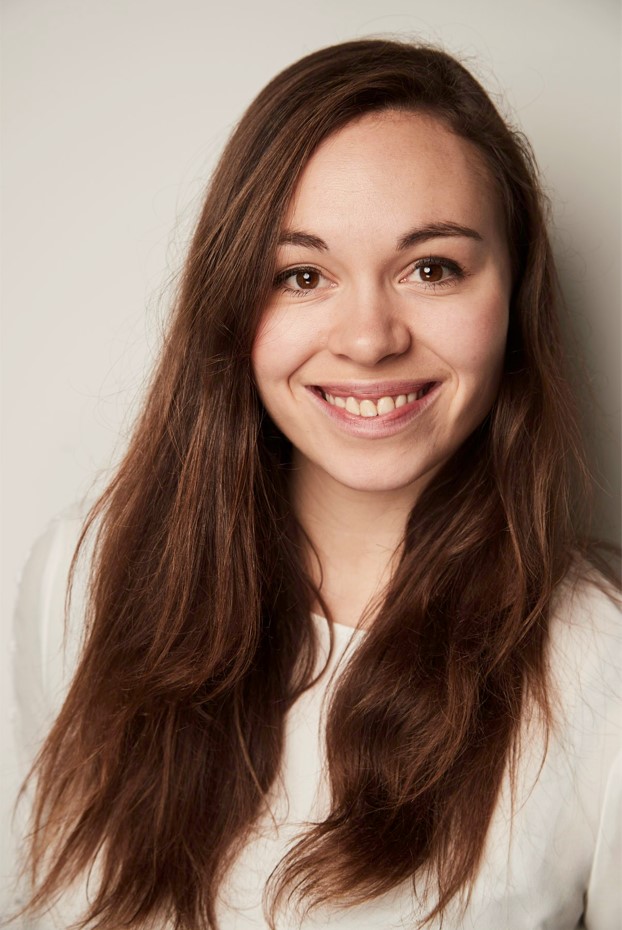Supporting Democracy - Promoting new forms of solidarity
Newsletter
We met Eline de Jong who is conducting research in the field of social enterprises. She says understanding diversity is key to promoting solidarity.

Eline de Jong, in her own words
I am a social anthropologist from the Netherlands. My research interests include questions of identity, belonging, power dynamics, and (social) inequalities, particularly as these play out in organisational and institutional contexts.
After obtaining a Bachelor’s degree in literary and cultural analysis at the University of Amsterdam, I continued with a Masters at the University of Oxford’s Institute of Social & Cultural Anthropology (United Kingdom), where I graduated with distinction in 2020. Upon completing my studies, I worked at the Erasmus University Medical Centre, where I conducted research into the socioeconomic impact of COVID-19 policy interventions in the city of Rotterdam (the Netherlands). Before commencing my academic career, I studied and worked in musical theatre for several years.
With my recent move to Belgium, I now have the experience of living in four different countries – both an enormous privilege as well as a bureaucratic challenge!
Is solidarity currently under pressure in Europe? According to Eline, the rise of an exclusionary rhetoric that has become ever more normalised through the politics of far-right and national populist parties, is putting this concept into jeopardy.
“These parties draw heavily on an ‘us versus them’ narrative, whereby ‘they’ are usually people of ethnic-cultural or religious minority groups whose presence is construed as posing a ‘threat’ to the ethnic-cultural majority,” she explains.
With this narrative expanding in Europe, it seems that solidarity, classically understood as a willingness among people in a society to share and redistribute resources, is being put under strain.
To counter this tendency, the project “Solidarity in Diversity” (SOLiDi) aims to understand how different forms of solidarity between various groups are formed, and to see what lessons can be learnt from these forms of solidarity.

Social enterprises in the spotlight
Together with 14 other early-stage researchers (ESRs) who all work on solidarity in diversity in different contexts, Eline is carrying out research in the field of social enterprises. “A social enterprise is a form of organisation that functions in a market context, on the one hand, but pursues a social objective, on the other. In my research project, I take a closer look at particular social enterprise initiatives in Flanders, Belgium, and analyse how, within these initiatives, possibilities for solidarity in diversity are generated and nurtured,” she says.
For Eline, it is important to conduct research on social enterprises, because of their specific organisational context. “Social enterprises employ market strategies to achieve financial sustainability, but these strategies cannot – or at least they should not – come at the cost of the organisation’s social mission and the solidarity strategies that are being employed to attain that mission. So, I think this hybrid organisational context – the tension between market- and Solidarity strategies – forms an interesting object of study,” she explains.
When it comes to solidarity within social enterprises, Eline muses that this concept is likely to be understood differently by the various stakeholders. “How different stakeholders understand solidarity is also of great significance in trying to understand how social enterprises carry out their dual mission of achieving financial sustainability and making a social impact,” she adds.
Emphasising ethical implications of research
The SOLiDi project has developed a training and research programme to train 15 ESRs in relevant theories, research methods and ethics from a variety of disciplines. Eline tells us how this works: “within our training and research programme, we focus, for instance, on theoretical concepts such as intersectionality, interculturalism, and of course solidarity and diversity, but we do so from a variety of disciplinary lenses ranging from sociology to educational sciences, human geography to anthropology (to name but a few). The benefit of combining these different disciplinary insights is that it allows for new ways of looking at ‘old’ problems, and it enriches each of our understandings of a particular concept or phenomenon,” she says.
The project emphasises the ethical implications of the research. Eline explains how: “we ask, for instance, about power dynamics involved in doing research (particularly when it involves communities that may be considered vulnerable), about how knowledge is produced and legitimised, and we consider what it means to speak with instead of about people. These are, in my opinion, extremely important questions for any researcher, and to be able to explore these issues through the SOLiDi network is just as exciting as it is necessary.”
Even though the SOLiDi project has just started only recently, Eline is confident about the expected results. “We are looking to build a platform that provides meaningful insights gained through our research and, as such, we hope to advance the policy of inclusion. If you are interested in SOLiDi’s work, be sure to follow us! You can find us on www.solidi.eu, @SOLiDi21 on Twitter and @solidi2021 on Instagram,” she concludes.
Aurélia Chaise
MCAA Editorial Team